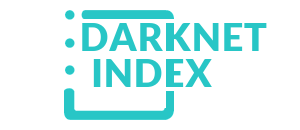The darknet, also known as the dark web, is a concealed section of the internet that's inaccessible via standard search engines. You can only access it using special software, settings, or authorization. This area comprises websites and content that are purposely kept hidden from public view.
Accessing darknet requires using Tor Browser, a special web browser that routes your internet traffic through a global network of relays managed by volunteers. This way, it becomes very difficult to trace which websites you're visiting, and these sites won't know where you are located.
When visiting the dark web, use a secure browser like Tor, do not reveal any of your personal information, and don't open suspicious files or links to stay safe.
The Darknet is often utilized for secure communication, discreet information or file sharing, anonymous research without identity exposure, and occasionally for engaging in illicit activities. It is also recognized for hosting underground black markets(darknet markets), whistleblowing platforms, and discussion boards that champion freedom of speech.
While accessing Darknet Markets themselves is typically not against the law in most places, engaging with illicit goods within them is generally considered a crime. On the other hand, some people might visit Darknet Markets for lawful purposes such as research, journalistic work, or simply to explore online communities. It's essential to know the local laws regarding online activities, and be cautious when using these platforms to avoid any potential issues.
Ohio Man Pleads Guilty to Running Darknet Bitcoin 'Mixer' Involved in Laundering Over $300 Million
An Ohio man has pleaded guilty to charges related to a Darknet cryptocurrency money laundering service. It laundered over $300 million in Bitcoin. Larry Dean Harmon, 38, from Akron, admitted to running Helix, a Bitcoin "mixer," from 2014 to 2017. It was designed to hide the source and ownership of Bitcoin transactions.
Court documents reveal that Helix allowed users to send Bitcoin to designated recipients, for a fee. This concealed their identities and the funds' origin. The service was linked to Grams, a Darknet search engine also managed by Harmon. He promoted Helix on the Darknet, helping users hide their transactions and evade law enforcement detection.
Criminal Enterprise Disrupted by Darknet Money Laundering Enforcement
An Assistant Attorney General from the Justice Department's Criminal Division stated, “By holding Harmon accountable, we have disrupted the illegal money laundering operations supporting dangerous criminal enterprises. Our law enforcement partners will find and stop those who exploit the Darknet for illegal profit and hide their crimes.”
Acting U.S. Attorney Channing D. Phillips for the District of Columbia said, "Darknet markets, where dealers sell illegal drugs like opioids, are a growing threat." These criminals try to hide their identities and launder millions using services like Helix. We will continue to dismantle the infrastructure of these criminal marketplaces.”
FBI Assistant Director warned, “Criminals may think they can use services like Helix to hide their illegal transactions. But the FBI and our partners are working to dismantle these Darknet money-laundering operations.””
Helix Facilitated the Laundering of Over 350,000 Bitcoin from Darknet Markets
Harmon's guilty plea says that Helix worked with several Darknet markets, like AlphaBay, Evolution, and Cloud 9. They used them to launder Bitcoin from illegal activities like drug trafficking. In total, Helix processed more than 350,000 Bitcoin—worth over $300 million at the time of the transactions. The majority of these funds were linked to Darknet markets involved in illicit trade.
Harmon further confessed to conspiring with Darknet vendors to launder these funds. He used his service to hide the Bitcoin's criminal origins.
Bitcoin Forfeiture and Potential Prison Sentence
As part of his plea, Harmon has agreed to forfeit over 4,400 Bitcoin, worth over $200 million now. He will also forfeit other properties used in the money laundering operation. He faces a maximum of 20 years in prison, a fine of up to $500,000 or twice the property's value, three years of supervised release, and mandatory restitution. U.S. District Judge Beryl Howell will determine his sentence after reviewing the U.S. Sentencing Guidelines
The Financial Crimes Enforcement Network (FinCEN) also fined Harmon $60 million in a parallel action.
